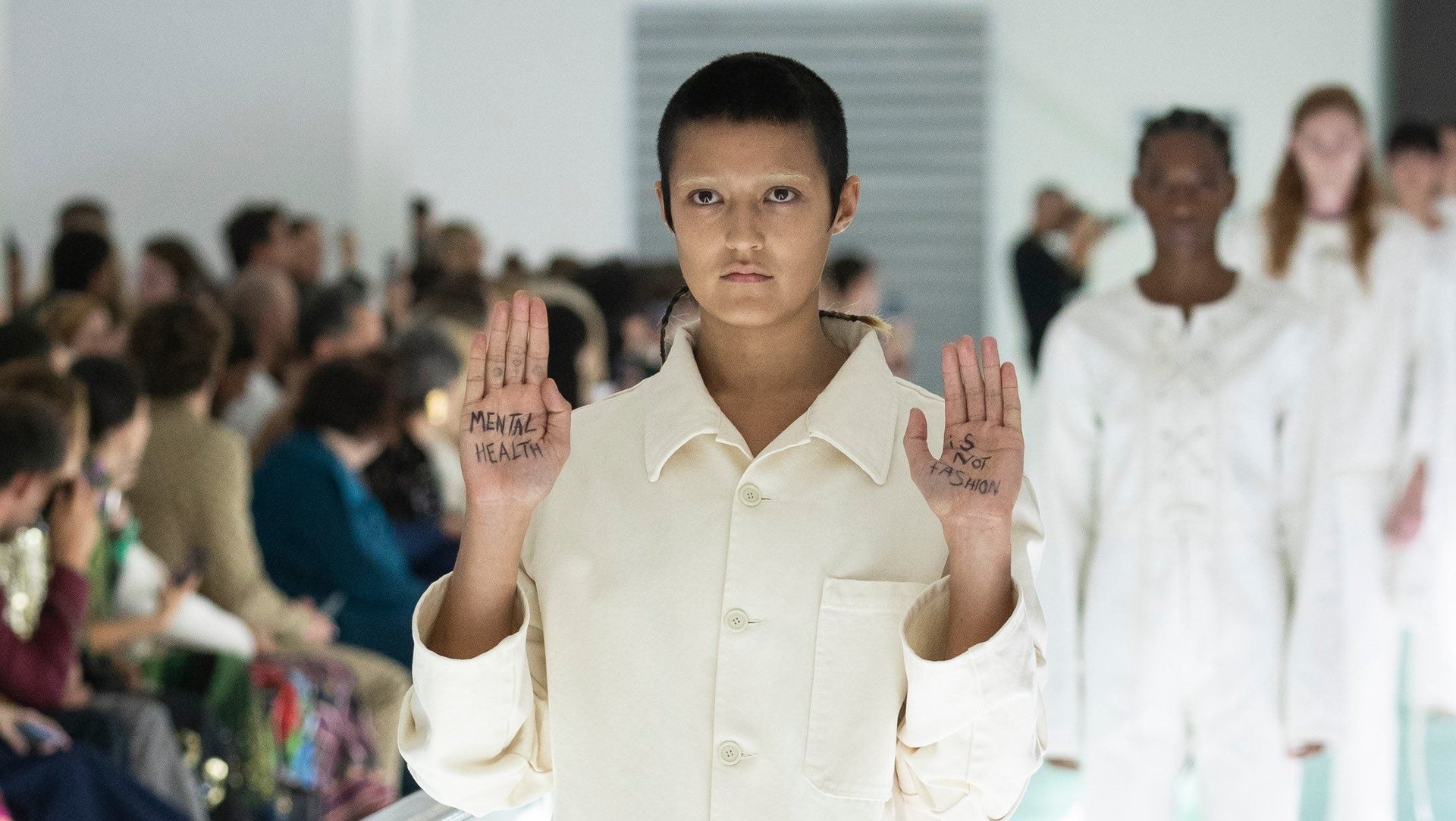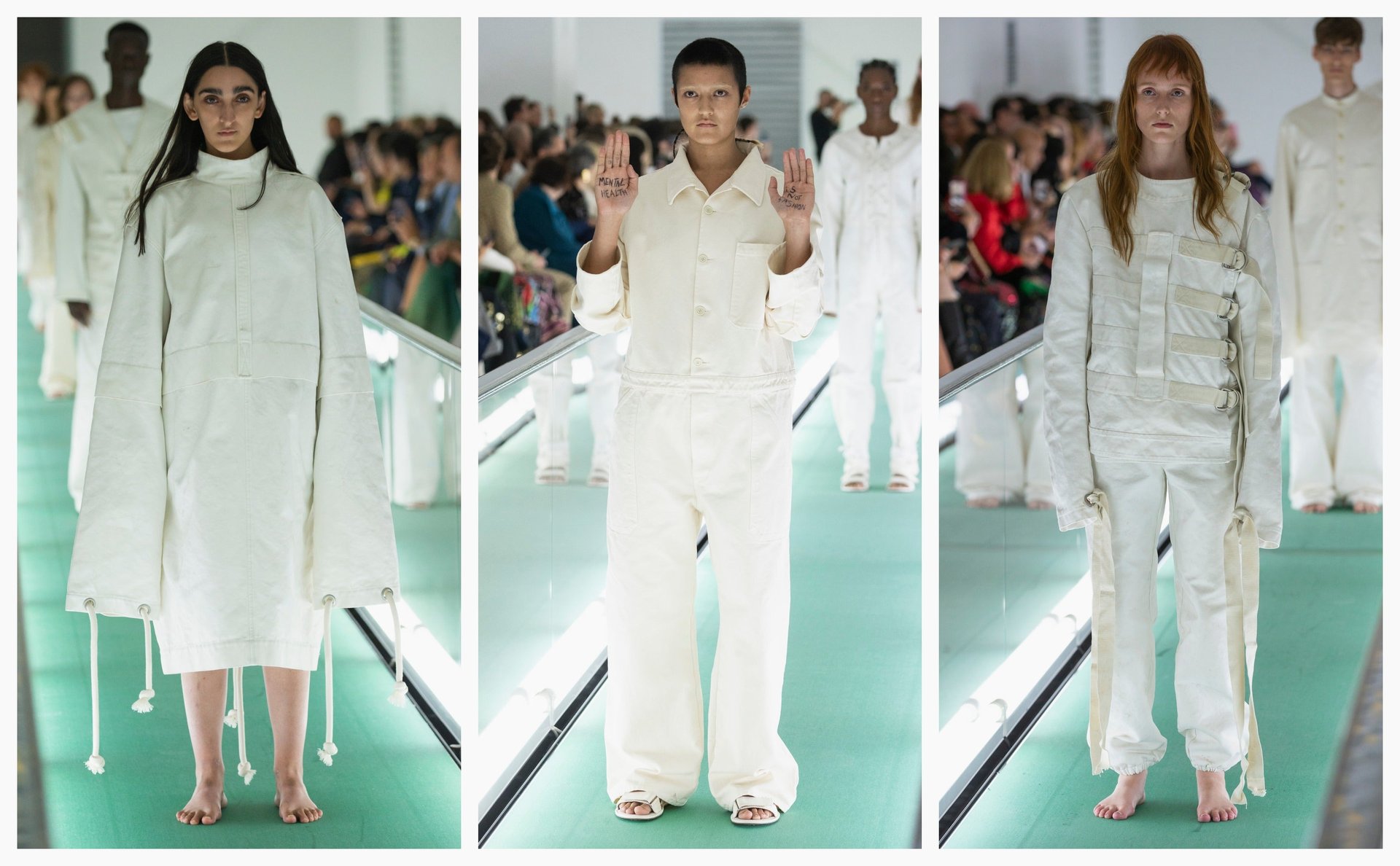The loudest critic of Gucci’s latest misstep was one of its own models
Fashion brands have a new watchdog to look out for: their own models.


Fashion brands have a new watchdog to look out for: their own models.
Luxury label Gucci caused some controversy online yesterday for its use of straitjackets in a series of opening looks meant as a social commentary. The most visible statement against the move, however, came from one of the models in the show.
Coming down the conveyor belt that formed the runway, Ayesha Tan-Jones (who identifies with the pronouns they/them) held up their hands to reveal the words “Mental health is not fashion” written on their palms. In an Instagram post, the model called for an end to stigmatizing mental-health issues and criticized Gucci.
“As an artist and model who has experienced my own struggles with mental health, as well as family members and loved ones who have been affected by depression, anxiety, bipolar and schizophrenia, it is hurtful and insensitive for a major fashion house such as Gucci to use this imagery as a concept for a fleeting fashion moment,” the post said.
Tan-Jones added in a separate Instagram post this morning that many of the other models in the show “felt just as strongly as I did about this depiction of straightjackets [sic].” Some of them, according to Tan-Jones, will be donating a portion of their fee from the show to mental-health charities.

Gucci said on Instagram that the “blank” looks that opened the show were intended by designer Alessandro Michele to depict how powerful forces can limit a person’s individuality and self-expression. It explained: “Uniforms, utilitarian clothes, normative dress, including straitjackets, were included in the #GucciSS20 fashion show as the most extreme version of a uniform dictated by society and those who control it.”
The brand also made clear that the clothes were meant as a statement and not intended for sale. The actual collection, a slightly sleeker, sexier version of Michele’s maximalist signature, followed, creating a deliberate contrast with the stifled look of the prologue.
The company has not issued an official statement on Tan-Jones’s protest. When contacted, a spokesperson for Gucci referred to the explanation in its Instagram post and Michele’s comment to the New York Times that the show was partly about freedom so the model should be free to protest.
Gucci, like other luxury brands including Dior and Prada, has been called out in recent months over ill-considered missteps, in those cases ones that repeated ugly racist tropes. Typically, the loudest criticism has been online, with some of those commentators able to influence the debate enough to knock brands back on their heels. Now it seems that if fashion brands aren’t thoughtful about what they’re doing, their own runways can become venues for protest too.
This story has been updated with the reply from a Gucci spokesperson.